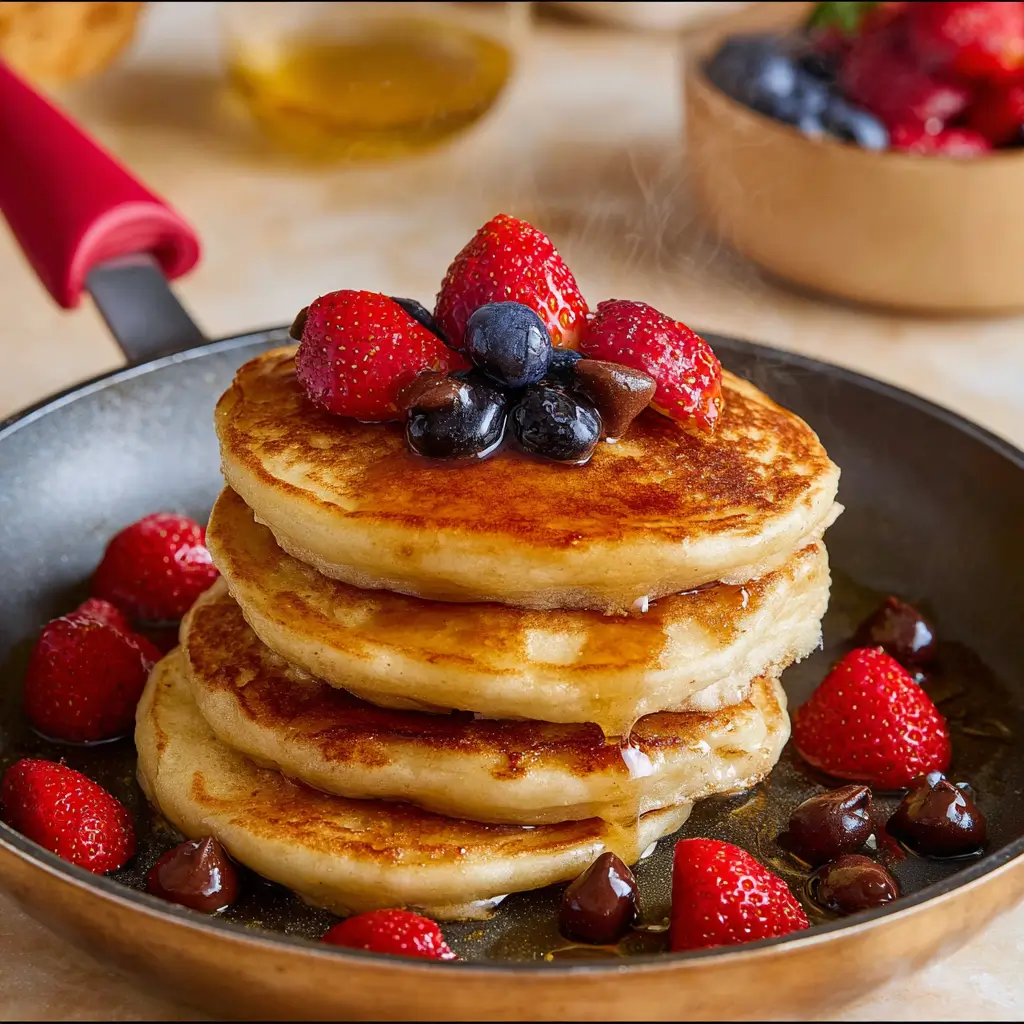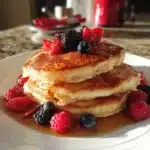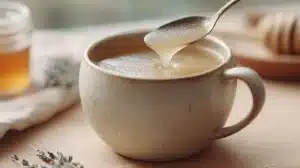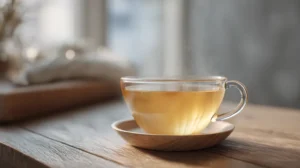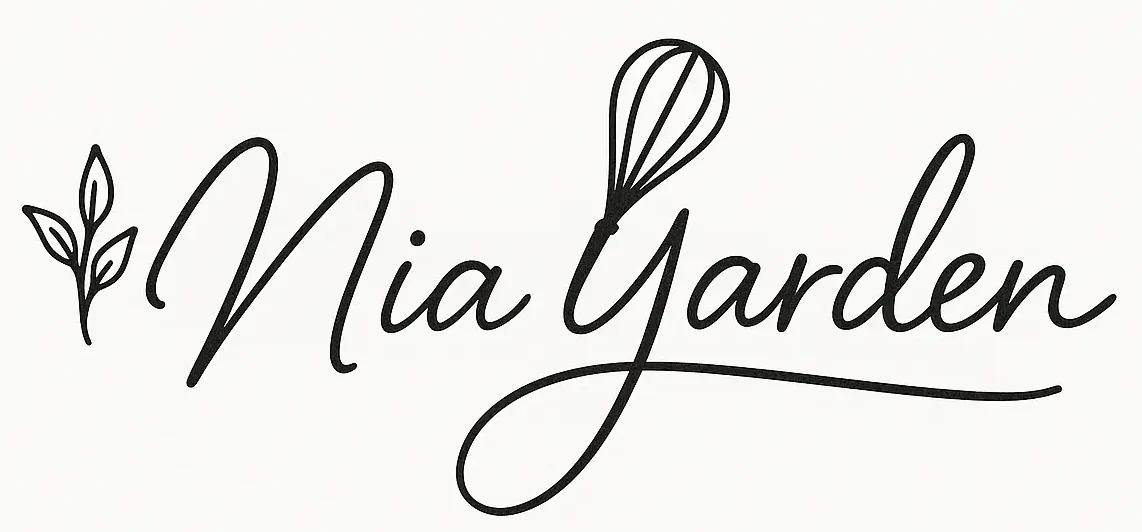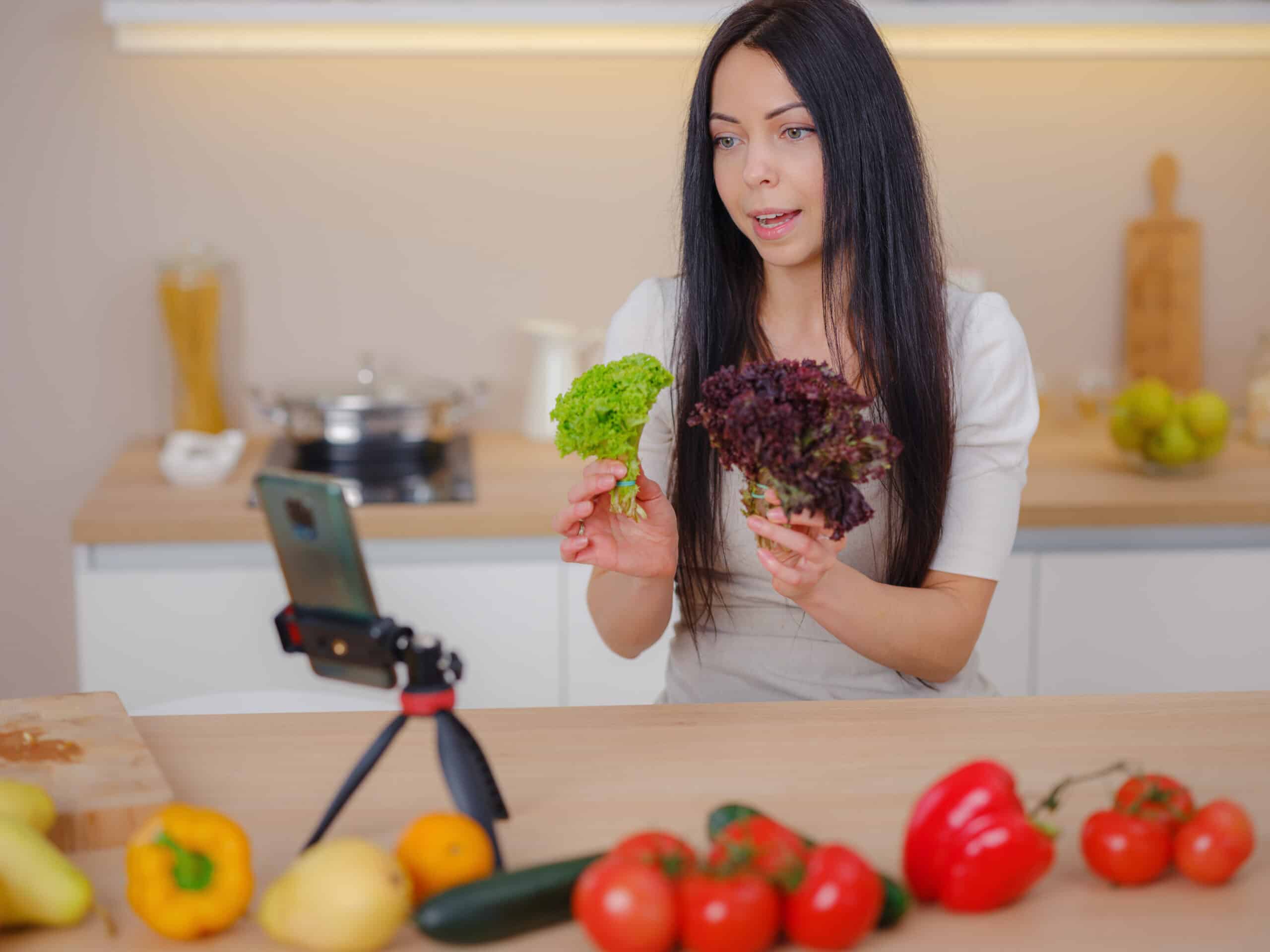If you thought giving up dairy meant kissing your pancake mornings goodbye, think again. Dairy free pancakes are here to prove that you can still enjoy a stack of fluffy, golden, delicious goodness without a drop of milk or butter. Whether you’re navigating a dairy allergy, adopting a vegan lifestyle, or simply trying something new, this guide will walk you through everything you need to know. From the best milk alternatives to creative add-ins and storing tips, we’ve got you covered. Looking for inspiration? Try our dairy-free banana bread for another breakfast favorite.
Table of Contents
Let’s dive into why dairy free pancakes might just become your new weekend ritual.
PrintEasy Fluffy Dairy Free Pancakes Recipe
Fluffy, easy, and made without milk or butter—these dairy free pancakes are perfect for plant-based breakfasts. Just a few pantry staples and 15 minutes!
- Prep Time: 10 minutes
- Cook Time: 15 minutes
- Total Time: 25 minutes
- Yield: 6–8 pancakes (Serves 3–4)
- Category: Breakfast
- Method: Stovetop
- Cuisine: American
- Diet: Vegan
Ingredients
1 cup all-purpose flour
2 tsp baking powder
1/4 tsp salt
2 tbsp sugar (optional)
1 cup almond milk (or any non-dairy milk)
2 tbsp melted coconut oil (or avocado oil)
1 tsp vanilla extract
Instructions
In a large bowl, mix flour, baking powder, salt, and sugar.
In another bowl, whisk together almond milk, melted coconut oil, and vanilla extract.
Combine wet and dry ingredients. Stir until just combined (batter will be slightly lumpy).
Heat a lightly oiled non-stick skillet over medium heat.
Pour 1/4 cup of batter for each pancake. Cook until bubbles form, then flip.
Cook the other side for 1–2 minutes or until golden brown.
Serve warm with maple syrup, fresh fruit, or dairy-free chocolate chips.
Notes
Substitute almond milk with oat, soy, or coconut milk based on taste preference.
For fluffier pancakes, let the batter rest for 5–10 minutes before cooking.
To make it gluten-free, use a 1:1 gluten-free flour blend.
Nutrition
- Serving Size: 1 pancake
- Calories: 120
- Sugar: 2g
- Sodium: 140mg
- Fat: 4g
- Saturated Fat: 2g
- Unsaturated Fat: 1.5g
- Trans Fat: 0g
- Carbohydrates: 18g
- Fiber: 1g
- Protein: 2g
- Cholesterol: 0mg
Why Choose Dairy Free Pancakes?
Health Benefits of Going Dairy-Free
Cutting dairy from your diet comes with several potential health perks. For many people, dairy can cause bloating, digestive discomfort, or skin issues due to lactose intolerance or sensitivity to milk proteins like casein. Choosing dairy free pancakes means you’re opting for a lighter, often easier-to-digest breakfast option.
In addition, plant-based ingredients often contain more fiber and less saturated fat than their dairy counterparts. Substituting dairy can help lower cholesterol and reduce inflammation—two key goals for many health-conscious eaters. Plus, dairy alternatives like almond milk or oat milk are often fortified with calcium, vitamin D, and B12, helping you maintain a balanced diet without traditional milk.
Dietary Preferences and Allergies – Why It Matters
For vegans or those with dairy allergies, dairy-laden foods are off-limits—but that doesn’t mean taste has to suffer. Pancakes without dairy can be just as satisfying, fluffy, and flavorful with the right ingredients. It’s also a great option for families managing multiple dietary needs. Whether you’re cooking for kids, friends, or yourself, a solid dairy free pancake recipe is a crowd-pleaser that fits many eating styles.
And let’s not forget that plant-based cooking is on the rise. It’s easier than ever to find ingredients and substitutes that work beautifully in traditional dishes. In this guide, you’ll learn how to reimagine classic pancakes without compromising on taste or texture.
Ingredients That Make the Perfect Dairy Free Pancakes
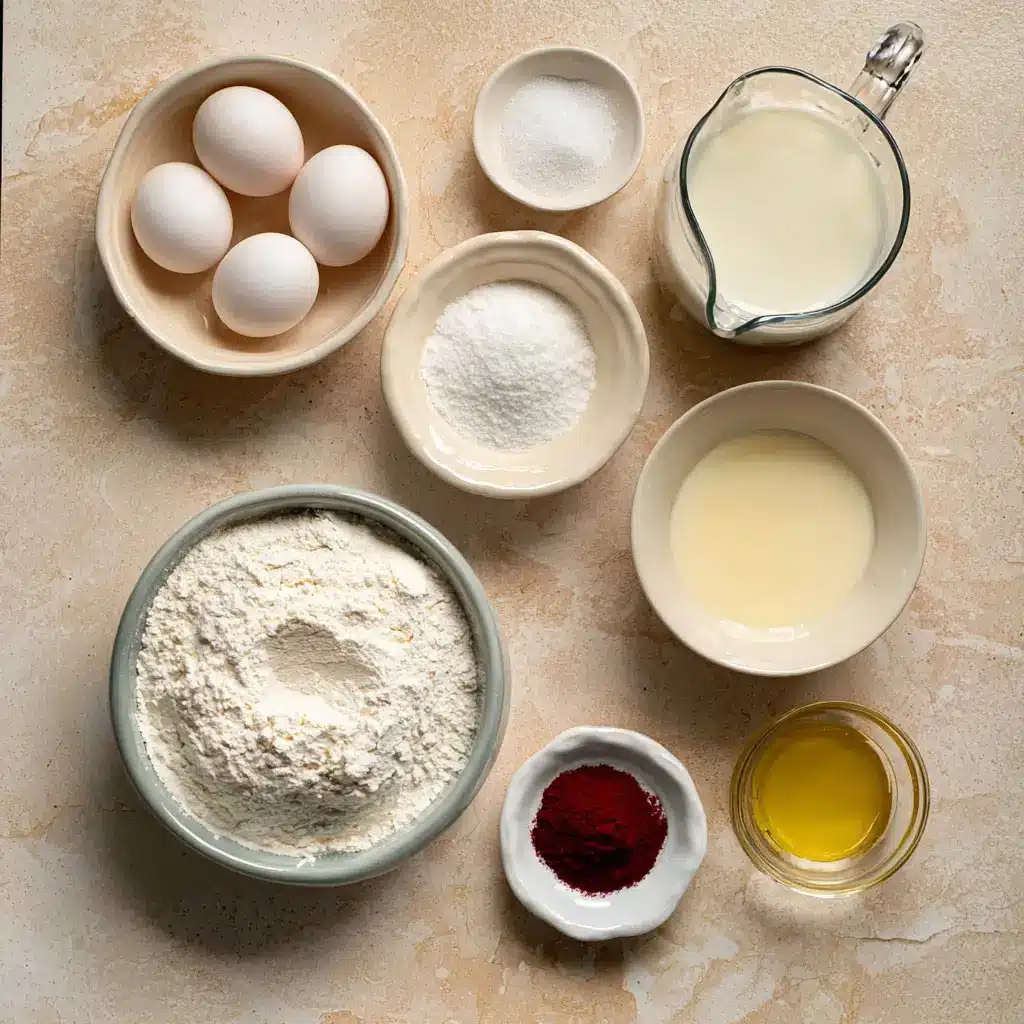
Best Dairy-Free Milk Alternatives for Pancakes
Swapping out traditional milk is easier than ever thanks to a wide range of plant-based options. Each non-dairy milk brings its own flavor and texture to your pancakes, and the key is choosing one that complements your taste and cooking needs. Here are some top choices for the best dairy-free milk for pancakes:
| Milk Alternative | Texture | Flavor Profile | Works Best For |
|---|---|---|---|
| Almond Milk | Light | Mild, nutty | Fluffy pancakes with a subtle nuttiness |
| Oat Milk | Creamy | Slightly sweet | Moist pancakes with soft centers |
| Coconut Milk | Rich | Sweet, tropical | Tropical or dessert-style pancakes |
| Soy Milk | Creamy | Neutral | Protein-rich, classic-style pancakes |
| Rice Milk | Thin | Mildly sweet | Light, crispy-edged pancakes |
For a thicker batter, oat milk or coconut milk work wonders. If you’re aiming for high-protein pancakes, soy milk is your best friend. Almond milk remains a versatile favorite because it doesn’t overpower other ingredients.
Don’t miss our dairy-free coffee creamer if you want a creamy drink to pair with your pancakes.
Other Essential Ingredients and Their Substitutes
Dairy isn’t the only ingredient to consider when making your pancakes fluffy and flavorful. Let’s look at the essential ingredients and how to make them work dairy-free:
- Eggs (optional for some vegan diets): Substitute with mashed bananas, flaxseed meal (1 tbsp flax + 3 tbsp water), or unsweetened applesauce.
- Butter: Replace with melted coconut oil, vegan butter, or avocado oil.
- Buttermilk: Mix 1 tbsp lemon juice or vinegar with 1 cup dairy-free milk to create a similar tangy effect.
Many recipes also use baking powder and a pinch of salt to help with rise and balance the sweetness. And don’t forget the vanilla extract—it makes a big difference in taste.
When you choose the right dairy-free alternatives and learn how to substitute smartly, you’re not just making pancakes—you’re mastering the craft of plant-based breakfast magic.
Check out our dairy-free protein shakes to boost your breakfast with energy and nutrition.
How to Make Dairy Free Pancakes From Scratch
Step-by-Step Instructions for Basic Dairy Free Pancake Recipe
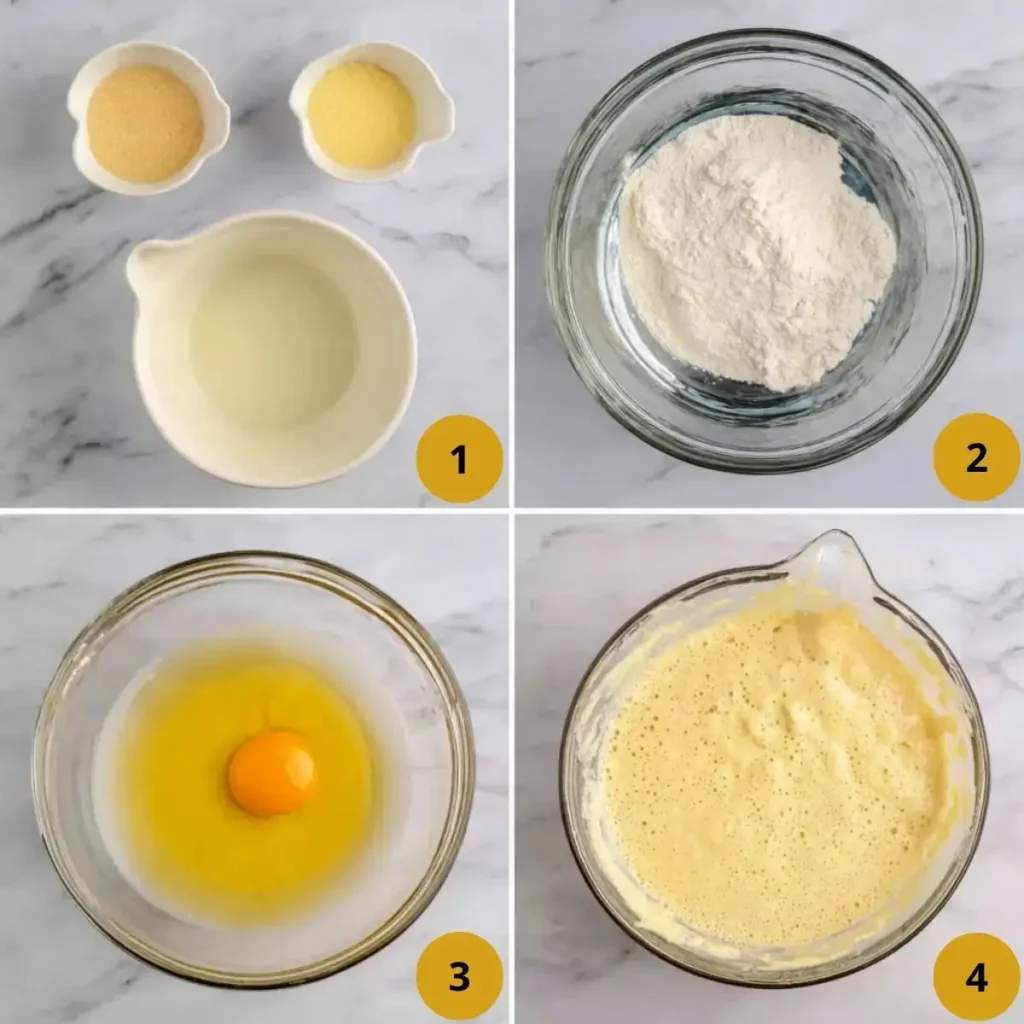
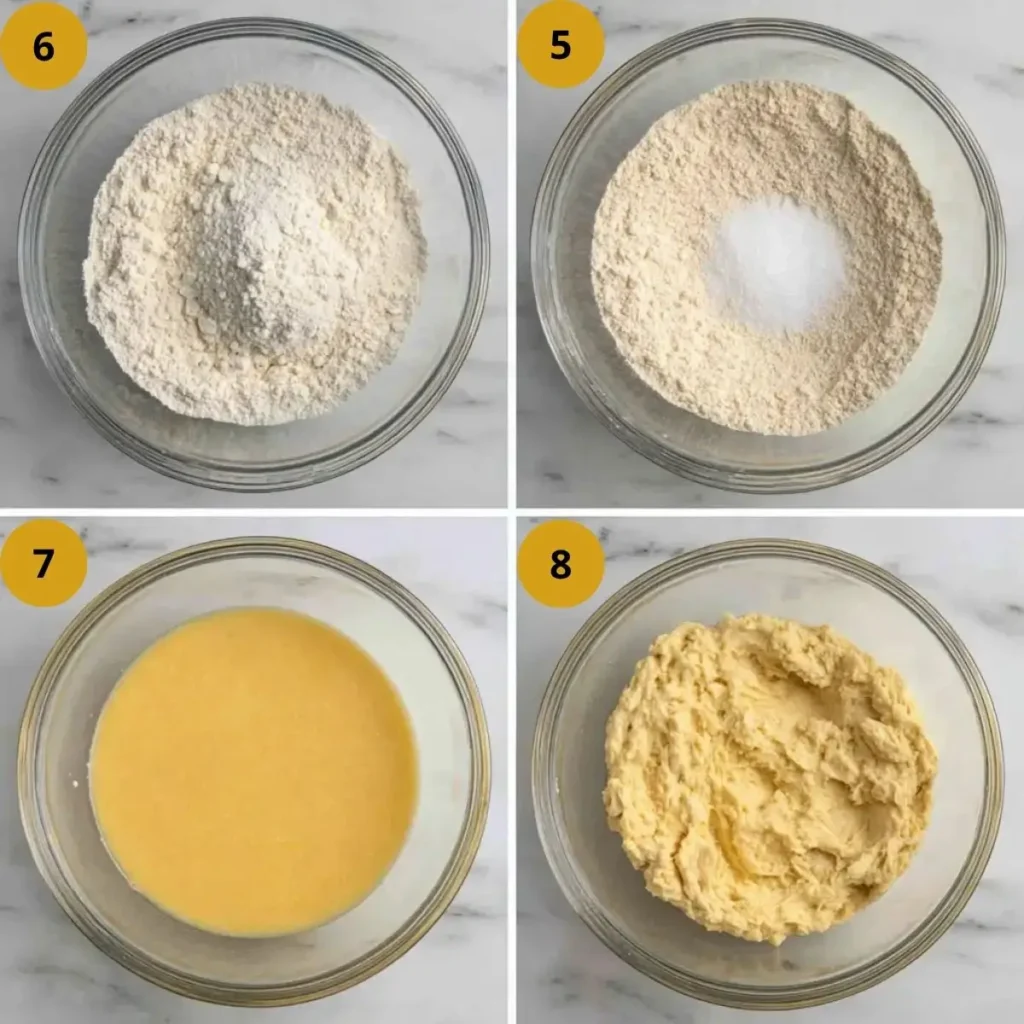
Crafting delicious dairy free pancakes from scratch doesn’t require fancy ingredients or chef-level skills. With the right method and a few plant-based staples, anyone can whip up a stack that’s light, fluffy, and mouthwatering.
Here’s a foolproof basic recipe to get you started:
Ingredients:
- 1 cup all-purpose flour
- 2 tablespoons sugar (optional)
- 2 teaspoons baking powder
- 1/4 teaspoon salt
- 1 cup almond milk (or other non-dairy milk)
- 2 tablespoons melted coconut oil (or any neutral oil)
- 1 teaspoon vanilla extract
Instructions:
- In a large bowl, whisk together the dry ingredients: flour, sugar, baking powder, and salt.
- In another bowl, combine almond milk, oil, and vanilla. Mix until smooth.
- Pour the wet ingredients into the dry and stir gently until just combined. Don’t overmix—it’s okay if the batter is slightly lumpy.
- Heat a non-stick skillet or griddle over medium heat. Lightly grease with oil or cooking spray.
- Scoop 1/4 cup of batter per pancake onto the hot surface. Cook for 2–3 minutes, or until bubbles form on the top and the edges look set.
- Flip and cook the other side for another 1–2 minutes until golden brown.
Serve warm with maple syrup, berries, or your favorite dairy-free toppings.
Discover great ideas like our dairy-free cream to drizzle over pancakes for a rich, indulgent twist.
Tips to Get the Fluffiest Texture Without Dairy
Want pancakes that puff up like clouds? These tricks make all the difference:
- Don’t overmix the batter. Overworking it develops gluten, making your pancakes dense instead of airy.
- Let the batter rest. Give it 5–10 minutes to sit before cooking. This allows the baking powder to activate and produces a lighter texture.
- Use fresh baking powder. Expired leavening agents won’t give you that beautiful rise.
- Cook on medium heat. Too high, and the outside burns before the inside cooks. Too low, and they don’t rise properly.
If you like experimenting, try replacing some flour with whole wheat or oat flour. Just be sure to increase the milk a little to keep the batter from thickening too much.
3-Ingredient Dairy Free Pancake Recipes
Simple 3-Ingredient Combinations That Work
Yes, you read that right—dairy free pancakes can be made with just three ingredients. These minimalist recipes are perfect for busy mornings, travel, or when your pantry’s running low. Here are a few tried-and-true combos:
| Ingredients | Directions | Texture | Flavor |
|---|---|---|---|
| 1 banana, 2 eggs, 1/4 tsp baking powder | Mash banana, whisk with eggs and baking powder, cook as usual | Soft, slightly chewy | Naturally sweet and rich |
| 1 cup oat flour, 1 cup almond milk, 1 tsp baking powder | Mix until smooth, cook on medium heat | Fluffy and hearty | Neutral, great for toppings |
| 1 mashed banana, 1/2 cup rolled oats, 1/4 cup almond milk | Blend all ingredients, cook on nonstick pan | Dense but soft | Banana-forward with oatiness |
These recipes are naturally dairy free, and depending on the combo, also gluten-free and grain-free. Want to level them up? Stir in a dash of cinnamon, nutmeg, or a splash of vanilla for extra flavor.
Don’t miss our dairy-free cupcakes if you love sweet, minimalist baking like this!
Nutrition Breakdown and Cooking Tips
Each 3-ingredient pancake recipe offers its own nutritional benefits. For example:
- Banana + eggs: High in potassium, protein, and naturally sweet—no syrup needed.
- Oats + milk: Great fiber source, heart-healthy, and keeps you full longer.
- Banana + oats + almond milk: Balanced carbs and natural sugars for a sustained energy boost.
Cooking Tips:
- Use a nonstick pan or griddle for best results.
- Keep heat at medium to avoid burning the outside before the inside is cooked.
- Add a pinch of salt to balance sweetness if using ripe bananas.
These quick recipes are ideal for meal prepping or whipping up a healthy breakfast in a flash.
Best Substitutes for Milk in Pancake Batter
Non-Dairy Liquids You Can Use Instead of Milk
One of the most common questions home cooks ask is: “What can I use instead of milk in pancake batter?” Fortunately, the options are abundant—and delicious. The goal is to find a liquid that provides moisture, a touch of fat (for richness), and complements the batter flavor.
Here are some of the best non-dairy milk substitutes for pancakes:
| Milk Substitute | Description | Best For |
|---|---|---|
| Almond Milk | Light texture, slightly nutty flavor | Everyday pancakes, nutty combos |
| Oat Milk | Creamier, mildly sweet | Thick and soft pancakes |
| Coconut Milk | Rich, high-fat, slightly sweet | Tropical pancakes or dessert-inspired |
| Soy Milk | Creamy with neutral taste | Fluffy pancakes, protein boost |
| Rice Milk | Watery and sweet | Crispy-edged pancakes |
| Water | Very basic and light | Emergency substitute or ultra-simple recipes |
| Apple Juice | Sweet and fruity | Kids’ pancakes, apple spice flavor |
| Dairy-Free Yogurt + Water | Thick and tangy | Buttermilk-style texture |
If you’re in a pinch, even water can work, although it won’t give the richness that non-dairy milk does. Want to explore more? Check out our is vegan dairy free guide to understand how dairy-free ingredients fit into a plant-based lifestyle.
Comparing Results: Texture, Taste, and Fluffiness
Each substitute changes the final pancake’s taste and feel. Here’s a quick comparison to help you decide what to use:
- Fluffiest results: Oat milk, soy milk, and almond milk with baking powder
- Richest flavor: Coconut milk and yogurt-water combos
- Lightest texture: Almond or rice milk
- Sweetest natural taste: Apple juice or sweetened almond milk
Pro Tip: If your pancake batter feels too runny with a certain substitute, just add an extra spoonful of flour. If it’s too thick, add a splash more liquid.
Experimenting with different dairy-free substitutes not only makes your pancakes customizable but also helps you discover new favorite textures and tastes.
Using Yogurt in Dairy Free Pancake Recipes
Can You Use Dairy-Free Yogurt?
Absolutely! Dairy-free yogurt is a fantastic substitute in pancake recipes, especially when you’re aiming for a slightly tangy flavor and a tender texture. It mimics the properties of buttermilk, helping create a moist, fluffy result that doesn’t rely on traditional dairy.
Here are some popular types of dairy-free yogurt you can use:
- Coconut Yogurt – Rich and creamy with a tropical edge
- Almond Yogurt – Light with a mild nutty flavor
- Soy Yogurt – Smooth, neutral taste, high in protein
- Oat Yogurt – Subtly sweet and creamy
Use about 3/4 cup of dairy-free yogurt in place of 1 cup of milk. For a thinner batter, mix yogurt with water (in a 2:1 ratio).
Pros and Cons of Using Yogurt as a Milk Replacement
Pros:
- Moisture-rich texture: Yogurt helps prevent dry pancakes.
- Tangy flavor: Adds a slight zest, much like traditional buttermilk.
- Better rise: Combined with baking powder or baking soda, the acidity helps your pancakes rise more.
- Nutrient boost: Many dairy-free yogurts are fortified with calcium, B12, and probiotics.
Cons:
- Thicker batter: You may need to adjust the liquid levels.
- Slight flavor alteration: Depending on the yogurt brand, it may impart a noticeable flavor.
- Cost: Dairy-free yogurts can be pricier than milk alternatives.
Learn more about dairy-free ingredients in action with our dairy-free chocolate chip cookies—perfect to pair with a pancake breakfast for dessert.
When used correctly, yogurt can turn your dairy-free pancakes from just “good” to bakery-level amazing. It’s a secret weapon worth keeping in your fridge.
Creative Add-ins for Dairy Free Pancakes
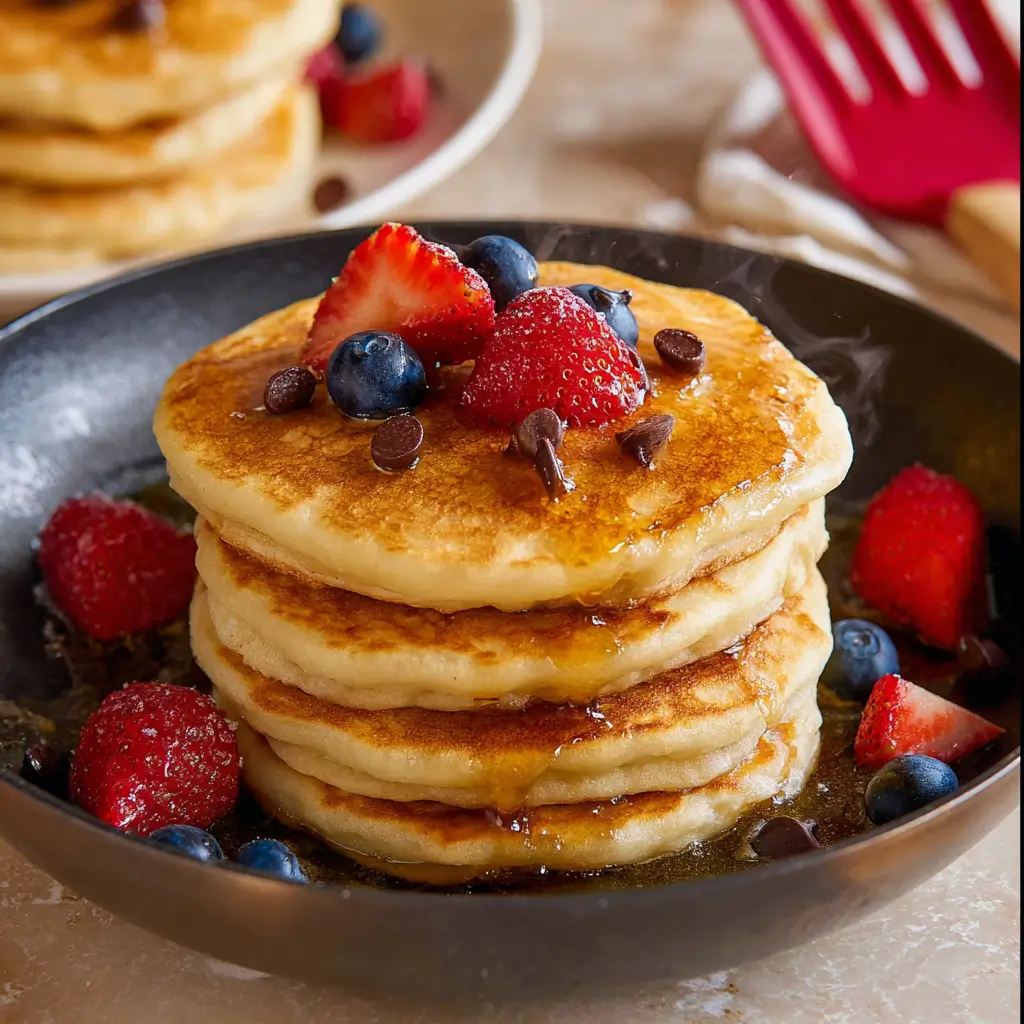
Fruits, Nuts, and Dairy-Free Chocolate Chips
Once you’ve nailed your base dairy free pancake recipe, it’s time to get creative with add-ins. These ingredients not only boost flavor but can also improve texture and nutritional value. Here are some delicious, dairy-free ideas to mix right into your batter:
Fruits:
- Banana slices: Add sweetness and moisture.
- Blueberries: Burst with flavor—fresh or frozen both work.
- Chopped apples or pears: Great for fall-inspired pancakes.
- Strawberries: Pair beautifully with coconut-based batters.
Nuts & Seeds:
- Chopped walnuts or pecans: Add crunch and healthy fats.
- Chia seeds or flaxseeds: Boost fiber and omega-3s.
- Pumpkin seeds: Toasted for a unique twist.
Sweet Add-ins:
- Dairy-free chocolate chips: A favorite among kids and adults.
- Shredded coconut: Pairs well with tropical fruits and oat milk.
- Cinnamon and nutmeg: Warm, cozy flavors perfect for morning.
Looking for inspiration? Try our dairy-free cupcakes for more sweet, creative combinations.
Flavoring Ideas: Vanilla, Cinnamon, and Beyond
A little spice or extract goes a long way in enhancing your pancake game. These flavors are easy to keep on hand and can completely transform your batter:
| Flavor | How to Use | Best Pairings |
|---|---|---|
| Vanilla Extract | 1 tsp per batch | Classic, chocolate chip, or fruit-based pancakes |
| Cinnamon | 1/2 tsp in dry mix | Apples, bananas, or pumpkin |
| Nutmeg | A pinch | Warm, winter-inspired batters |
| Lemon Zest | From 1 lemon | Blueberry or coconut pancakes |
| Cocoa Powder | 1 tbsp in batter | Chocolate pancakes (use almond milk or coconut milk) |
For best results, always add dry flavorings to the flour mix and liquids like extracts to the wet ingredients. This ensures even distribution and consistent flavor throughout the stack.
With these customizations, your dairy-free pancakes can be tailored to any craving, season, or mood.
Storing and Reheating Dairy Free Pancakes
Best Ways to Store Leftovers (Fridge vs Freezer)
Cooking a big batch of dairy free pancakes ahead of time? Smart move. They store wonderfully and are just as tasty reheated—if you do it right.
Refrigerator Storage:
- Allow pancakes to cool completely.
- Place them in an airtight container, separating layers with parchment paper to prevent sticking.
- Store in the fridge for up to 4 days.
Freezer Storage:
- Lay pancakes in a single layer on a baking sheet and freeze for about 30 minutes.
- Once frozen, transfer them to a zip-top freezer bag or airtight container.
- They’ll stay fresh for up to 2 months.
Pro Tip: Label the container with the date and flavor (especially if you have different add-ins). This saves you time guessing later.
Don’t miss our is vegan dairy free guide to better understand storing plant-based recipes the smart way.
Reheating Tips to Retain Freshness and Texture
Getting that fresh-off-the-griddle taste from refrigerated or frozen pancakes is easy with the right method:
| Method | Instructions | Best For |
|---|---|---|
| Toaster | Pop pancakes straight into the toaster on medium heat | Crispy edges, quick results |
| Oven | Bake at 350°F (175°C) for 5–8 minutes (use foil to prevent drying) | Large batches |
| Microwave | Wrap in a damp paper towel and heat for 30–45 seconds | Soft texture, individual servings |
| Skillet | Reheat on a lightly greased pan for 1–2 mins per side | Crispy and warm, close to original taste |
Avoid microwaving too long, which can make them rubbery. For frozen pancakes, let them thaw in the fridge overnight or use the microwave’s defrost setting before toasting or baking.
Now you’ve got pancakes on demand—perfect for rushed mornings or lazy Sundays.
FAQs About Dairy Free Pancakes
What’s the best dairy-free milk for making pancakes?
The best dairy-free milk depends on what you’re looking for. Almond milk is light and neutral, making it ideal for fluffy, everyday pancakes. Oat milk is creamier and slightly sweet, offering more richness. Coconut milk delivers a tropical flavor, perfect if you like sweeter or dessert-style pancakes. If you need a protein boost, soy milk is a strong choice. For most people, almond milk hits the sweet spot of flavor, texture, and availability.
Can pancakes be made without milk or dairy products?
Absolutely! Pancakes can be made 100% dairy free with plant-based milk, dairy-free yogurt, or even water in a pinch. These recipes work just as well, producing light, fluffy stacks that are just as satisfying as the traditional kind. Don’t forget to swap out butter with coconut oil, avocado oil, or vegan margarine for a full dairy-free experience.
What can I use instead of milk in pancake batter?
You can use any of the following non-dairy alternatives:
Almond milk
Oat milk
Soy milk
Coconut milk
Rice milk
Water (with a little extra fat added)
Each of these liquids will give your batter the moisture it needs without compromising flavor. Adjust the thickness of your batter accordingly.
Is yogurt a good substitute for milk in pancake recipes?
Yes—dairy-free yogurt is an excellent substitute for milk in pancakes. It adds moisture and a slight tang, similar to buttermilk. Yogurt helps create a tender, soft crumb and works well with baking powder or soda to produce a fluffy texture. For best results, use a blend of yogurt and water to match the consistency of milk.
How do you make pancakes with just three ingredients?
It’s easier than you think. Try this simple recipe:
1 mashed banana
2 eggs
1/4 tsp baking powder (optional but helps fluff)
Mix well and cook on a non-stick skillet. You’ll get naturally sweet, soft pancakes—no milk or flour required. Another option is combining oat flour, non-dairy milk, and baking powder for a hearty, flour-based alternative.
Conclusion: Time to Flip the Best Dairy Free Pancakes Ever
Whether you’re going dairy-free for health, ethics, or just trying something new, making fluffy, delicious dairy free pancakes is easier than ever. From basic recipes to 3-ingredient wonders, and from almond milk to coconut yogurt swaps, there’s no shortage of creative, satisfying ways to enjoy pancakes without dairy. Armed with our guide, you can confidently whip up breakfast favorites for any lifestyle—no compromises on flavor or texture.
Next time you’re in the kitchen, experiment with new ingredients, toppings, and substitutes. And if you’re in the mood to pair your pancakes with more dairy-free goodness, don’t miss our dairy-free banana bread and dairy-free protein shakes.
Follow us for more dairy-free and plant-based recipes:
Facebook: NYT Recipe on Facebook
Pinterest: NYT Recipe on Pinterest
